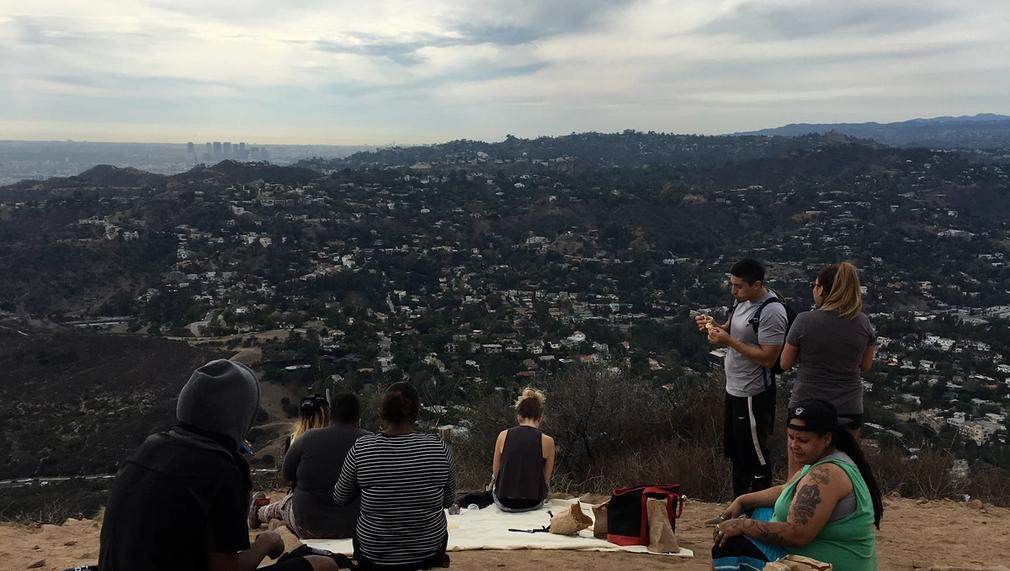Comprehensive Services for Families Impacted by Incarceration
Funding supports the Az Hakim Foundation's efforts to address the needs of children and families impacted by incarceration. Our recreational and supportive services programs are targeted towards supporting the children, a formerly incarcerated parent (or family member), and the parent (or caretaker) alone supporting their family's needs. Funding is needed to support tutoring services, academic enrichment, mental health, holistic wellness services, life skills, family rebuilding, and raise community awareness to destigmatize these families.

What is the primary issue area that your application will impact?
Social support networks
In what stage of innovation is this project, program, or initiative?
Expand existing project, program, or initiative (expanding and continuing ongoing, successful work)
What is your understanding of the issue that you are seeking to address?
Society does not often recognize the trauma associated with families impacted by incarceration. Whether the family member is currently incarcerated or formerly incarcerated, the families are often faced with financial, emotional, and mental health challenges. Rehabilitation programs for youth and adults often have a one size fits all approach, which can result in high recidivism rates. The school to prison pipeline concept also ostracizes youth from being integrated into programs with their peers that are considered to be "low risk." A trauma-focused and person-centered approach program is effective in helping families impacted by incarceration.
Describe the project, program, or initiative this grant will support to address the issue.
The Az Hakim Foundation seeks to provide supportive services that seek to help families understand their trauma narrative and learn the benefits of utilizing different tools and resources to improve their way of life. Our Breaking Bars support groups for youth and adults promote discussion around sensitive topics that are directly or indirectly related to incarceration. Within the group participants are also encouraged to utilize art expression to process their feelings. The wellness hikes encompass the ability to address physical, emotional, mental health needs while fostering family and community bonding. Enrichment activities and field trips further aid in promoting bonding and learning experiences for all ages. Yoga classes are trauma focused that incorporate multidisciplinary healing practices that include restorative yoga, mindfulness, and sound baths. Participant's enrollment services will include a required orientation that provides psychoeducation on unresolved trauma and generational trauma and its impact on the brain. The orientation will also highlight the programs provided and seek input from participants regarding their current needs. All orientations will be catered to the participant's age and developmental stages. Overall the program provided by the Az Hakim Foundations helps individuals and their families learn healthy ways to cope and practice effective self regulation while having access to various resources that improve their overall wellbeing.
Describe how Los Angeles County will be different if your work is successful.
Families impacted by incarceration will have a community resource that feels like family. They will have a program that supports them in defying the odds against them. People desire programs that see them as human and not a billable line item. The Az Hakim provides support to the family as a family system providing resources for each individual in the family while creating a space to nurture and sustain the family system while it navigates through hardships.
What evidence do you have that this project, program, or initiative is or will be successful, and how will you define and measure success?
Although the hiking trips and Breaking Bars support groups are existing projects, the addition of psychoeducation and yoga wellness services are new. Success will be measured by identifying SMART goals and tracking progress based on some of factors listed below:
number of new participants number of retained participants
Referrals received (i.e. self referrals, peers referrals, organization referrals)
participant feedback (i.e. self reporting, academic achievements, certifications)
progress with treatment goals (when applicable)
Approximately how many people will be impacted by this project, program, or initiative?
Direct Impact: 200.0
Indirect Impact: 500.0